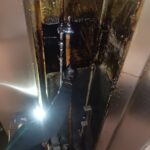NFPA-96 Standards: A Guide for Restaurant Owners
As a restaurant owner, ensuring the safety and compliance of your establishment is paramount. One aspect of maintaining a safe environment is understanding and adhering to the National Fire Protection Association (NFPA) 96 standards. These standards outline the requirements for the design, installation, operation, inspection, and maintenance of commercial kitchen exhaust systems. In this blog post, we’ll delve into the essentials of NFPA 96 standards and why they are essential for every restaurant owner to know.
Understanding NFPA 96 Standards
NFPA 96 standards are comprehensive guidelines developed to prevent fire hazards in commercial kitchens, particularly those associated with grease accumulation in exhaust systems. These standards cover various aspects, including hood and duct system design, grease removal devices, exhaust fan requirements, and fire suppression systems.
Importance of Compliance
Compliance with NFPA 96 standards is not just a matter of regulatory requirement; it’s also crucial for safeguarding your restaurant, employees, and customers from potential fire hazards. Non-compliance can lead to severe consequences, including fines, legal liabilities, and, most importantly, the risk of fire outbreaks that can cause property damage and endanger lives.
Key Requirements
Restaurant owners should familiarize themselves with some key requirements outlined in NFPA 96 standards:
- Hood and Duct System Design: NFPA 96 specifies the design criteria for kitchen hoods and exhaust ducts to effectively capture and remove grease-laden vapors.
- Grease Removal Devices: The standards mandate the installation of grease filters or other approved devices to trap grease before it enters the exhaust system.
- Exhaust Fan Specifications: NFPA 96 outlines the requirements for exhaust fan size, location, and maintenance to ensure adequate ventilation and prevent grease buildup.
- Fire Suppression Systems: Automatic fire suppression systems, such as wet chemical systems, are required to be installed to extinguish grease fires quickly and prevent their spread.
Regular Maintenance and Inspections
In addition to initial compliance, ongoing maintenance and inspections are essential to ensure continued adherence to NFPA 96 standards. Regular cleaning of hood systems, exhaust ducts, and grease traps is crucial for preventing grease accumulation and maintaining optimal system performance. NFPA 96 also recommends scheduling periodic inspections by qualified professionals to assess system integrity and identify any potential issues.
Partnering with Certified Professionals
Given the complexity of commercial kitchen exhaust systems and the critical nature of fire safety, restaurant owners should consider partnering with certified professionals like Hood Guyz for hood cleaning and maintenance services. Certified technicians have the expertise and training to ensure that your kitchen exhaust system complies with NFPA 96 standards and operates safely and efficiently.
In conclusion, NFPA 96 standards play a vital role in promoting fire safety in commercial kitchens. By understanding and adhering to these standards, restaurant owners can create a safer working environment, reduce the risk of fire hazards, and protect their business and stakeholders. Remember, compliance is not just a legal obligation—it’s a commitment to ensuring the well-being of everyone involved in your restaurant operations.








